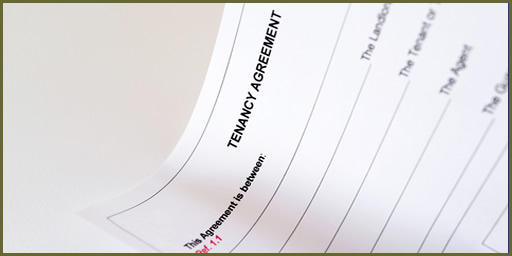Many property owners see the lure of what they think will be “easy money” if they become a new landlord. However, successful new landlords stay focused on being the best business owners possible.

The following are seven essential tips for being a landlord and they are especially useful for brand new landlords:
- Do Your Homework
Rental markets can vary widely from state to state and even from neighborhood to neighborhood. New landlords should learn as much as they can about their chosen rental market to find out average rents as well as laws and common policies for the area.
- Use a State-Specific Standardized Lease
Every state is different in terms of what rules and policies landlords are allowed to enforce. A state-specific lease template can provide a framework for a boilerplate lease used with all tenants. It can be customized to reflect specific policies, but should be well-researched and standardized for all tenants.
- Be Savvy in Your Marketing
There are a range of free ways to advertise properties for rent and for new landlords to connect with new tenants online. Craigslist.com, Postlets.com and social media are just a few. Once tenants give notice, start advertising and showing the property right away to help ensure units never sit vacant for very long.
- Be Friendly but Professional
Treat all applicants and tenants with respect and kindness, but be sure to always maintain a spirit of professionalism. New landlords should understand that getting too personal with tenants could open the door to sliding standards and lost income, so be sure to set appropriate professional boundaries with all renters.
- Set Rules and Enforce Them
Once policies have been established, they should be maintained and enforced. For example, if a fee is charged for late rent, this policy should be enforced consistently. If it isn’t, the rental due date may not be taken seriously by all tenants.
- Keep Organized Records
A file should be kept on each tenant containing their signed lease and all pertinent information. If any incidents occur related to damaged property or missed rental payments, all aspects of the issue should be well documented for a possible court case down the road.
- Screen and Verify
Just because an applicant puts it on an application, that doesn’t mean it’s true. All information provided should be double-checked and verified. Professional tenant screening should be used to check for credit problems, eviction history and a criminal record.
Being a landlord can be rewarding, but novice landlords often face a big learning curve. New landlords can use these seven tips to help increase their odds of success.
Disclaimer: The information on this website does not constitute legal advice and is governed by our Terms of Use. We make no claims, promises or guarantees about the accuracy, completeness, or adequacy of the information contained in or linked to this website and its associated sites.

